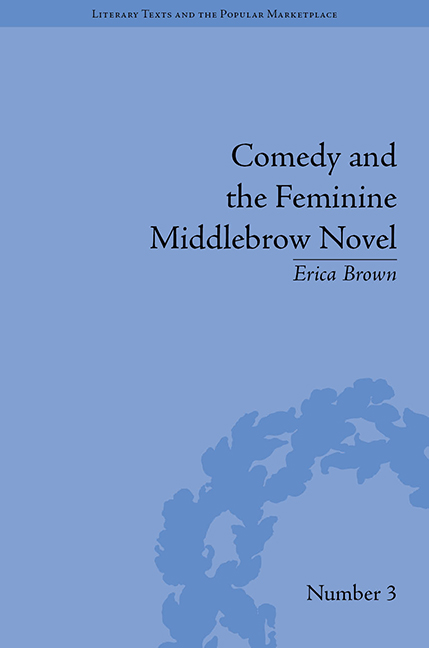Book contents
- Frontmatter
- CONTENTS
- Acknowledgements
- Introduction
- 1 The Middlebrow and Comedy: Elizabeth Taylor and Elizabeth von Arnim's Cultural and Literary Context
- 2 A Comedic ‘Response’ to War? Elizabeth von Arnim's Christopher and Columbus (1919) and Mr Skeffington (1940), and Elizabeth Taylor's At Mrs Lippincote's (1945)
- 3 ‘One Begins to See what is Meant by “They Lived Happily Ever After”’: Elizabeth von Arnim's Vera (1921) and Elizabeth Taylor's Palladian (1946)
- 4 ‘One Shudders to Think what a Less Sophisticated Artist would have Made of It’: The Comedy of Age in Elizabeth von Arnim's Love (1925) and Elizabeth Taylor's In a Summer Season (1961)
- Conclusion
- Notes
- Works Cited
- Index
Conclusion
- Frontmatter
- CONTENTS
- Acknowledgements
- Introduction
- 1 The Middlebrow and Comedy: Elizabeth Taylor and Elizabeth von Arnim's Cultural and Literary Context
- 2 A Comedic ‘Response’ to War? Elizabeth von Arnim's Christopher and Columbus (1919) and Mr Skeffington (1940), and Elizabeth Taylor's At Mrs Lippincote's (1945)
- 3 ‘One Begins to See what is Meant by “They Lived Happily Ever After”’: Elizabeth von Arnim's Vera (1921) and Elizabeth Taylor's Palladian (1946)
- 4 ‘One Shudders to Think what a Less Sophisticated Artist would have Made of It’: The Comedy of Age in Elizabeth von Arnim's Love (1925) and Elizabeth Taylor's In a Summer Season (1961)
- Conclusion
- Notes
- Works Cited
- Index
Summary
My analysis of the reviews of von Arnim's and Taylor's novels demonstrates that from the 1920s through to the 1960s – despite all the changes in literary movements and fashions that occurred in these years – they have consistently been regarded as out of step with critically valued literature. There are hints of it in Katherine Mansfield's review of von Arnim's 1919 novel Christopher and Columbus, as she compliments von Arnim's incisive prose: ‘All that she wants she can convey with a comment – at a stroke. There is a whole volume for one of our psychological authors in Mr. Twist's quarrel with his mother; she dismisses it in a little chapter’. In making this comparison with ‘our psychological authors’, Mansfield perceived that von Arnim might now be out of step in a changing literary climate.
These comparisons were not always belittling; on the contrary, many reviewers compared von Arnim favourably with the new generation of critically acclaimed writers. In 1925, as I discussed in the previous chapter, Louis Bromfield recommended that ‘serious young writers’ could learn from her quality of humour; similarly, a review of Father (1931) suggested that von Arnim has a ‘sly, enchanting kind of humour, an effortless felicity of style which the younger generation would do well to envy’. Furthermore, the reviewer contends, ‘if this were Elizabeth's first novel, scores of bright young critics would be patting themselves on the back for making a new literary discovery’.
- Type
- Chapter
- Information
- Comedy and the Feminine Middlebrow NovelElizabeth von Arnim and Elizabeth Taylor, pp. 113 - 124Publisher: Pickering & ChattoFirst published in: 2014



